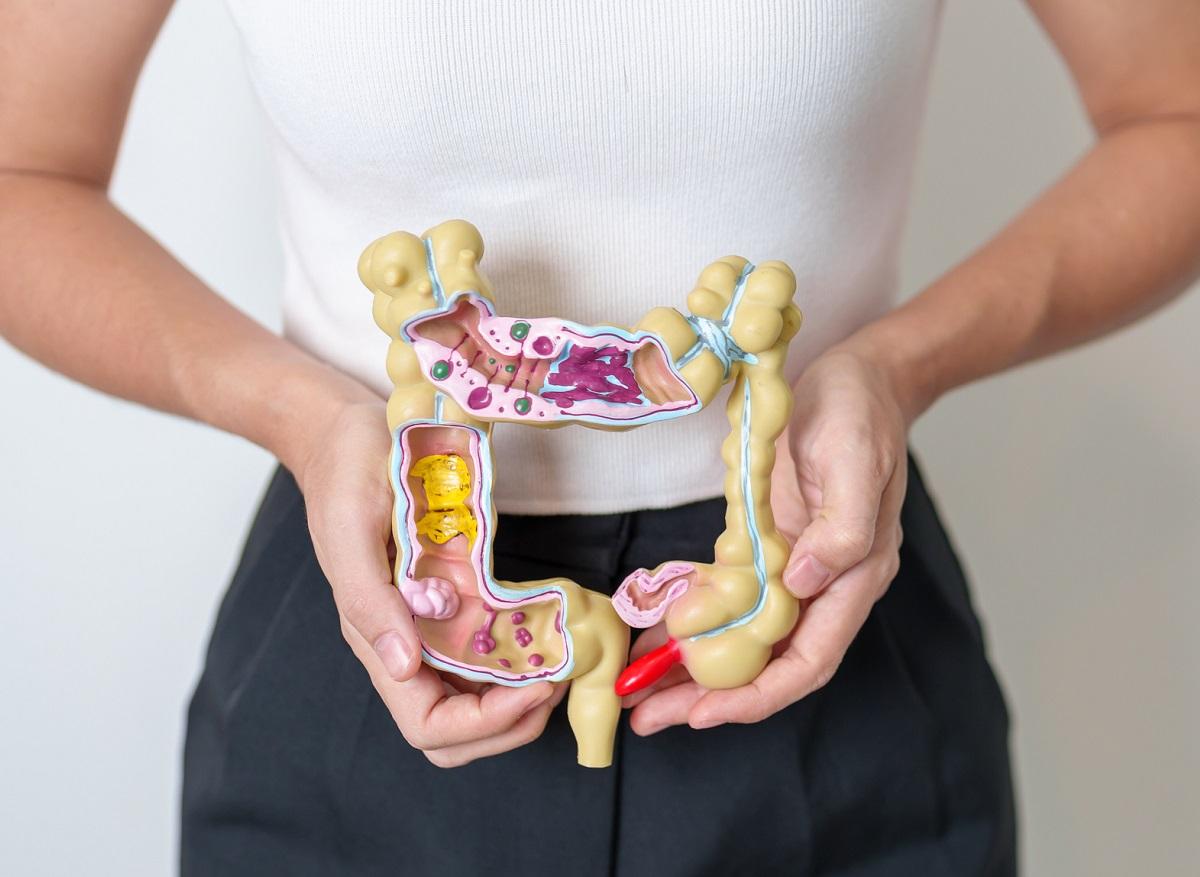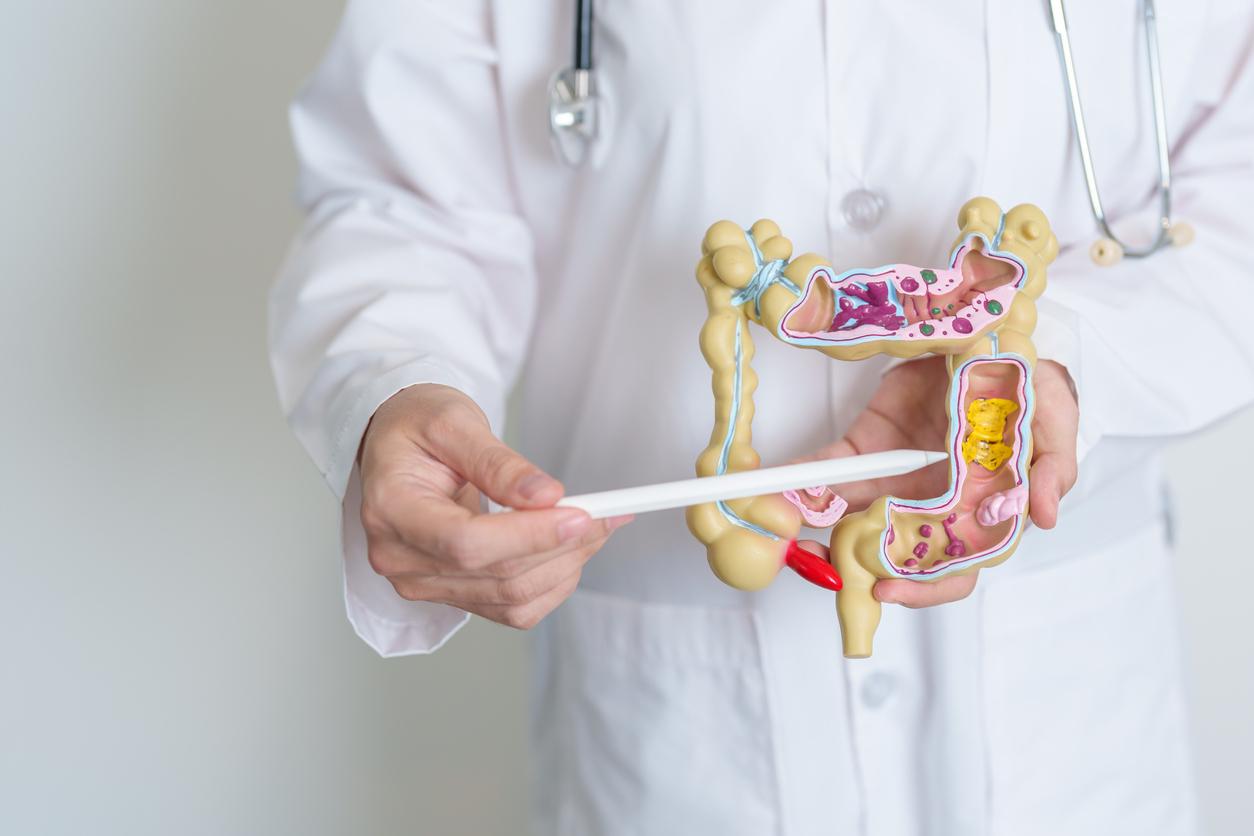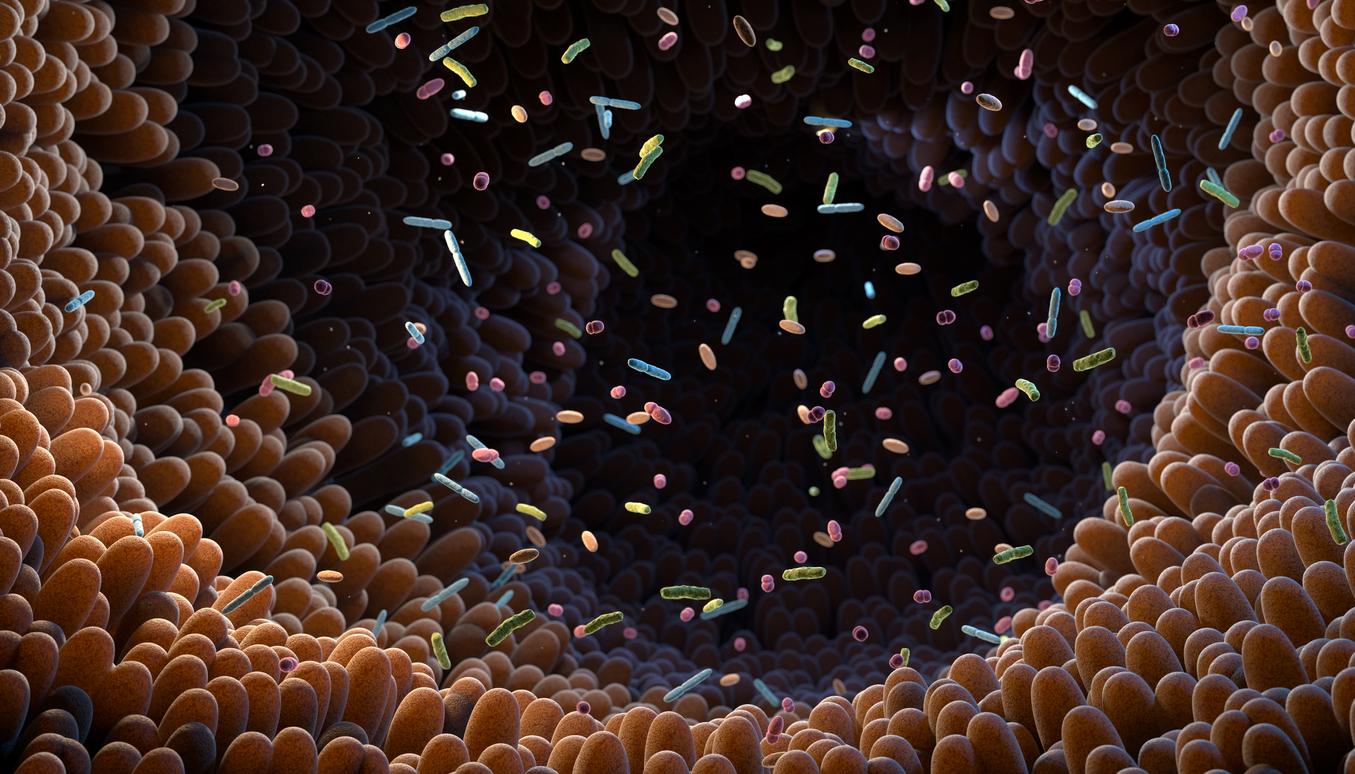Inflammatory flare-ups associated with Crohn’s disease and ulcerative colitis can be characterized by different symptoms. How to recognize them?

- Crohn’s disease and ulcerative colitis are part of inflammatory bowel diseases (IBD).
- Manifestations associated with IBD vary depending on the severity and location of the inflammation.
- Nearly 200,000 people have IBD in France.
Mostly diagnosed between the ages of 20 and 30, inflammatory bowel diseases (IBD) include Crohn’s disease and ulcerative colitis. These pathologies result in inflammation of the wall of part of the digestive tract due to deregulation of the intestinal immune system, according to the National Institute of Health and Medical Research (Inserm).
What are the symptoms related to Crohn’s disease and ulcerative colitis?
Patients affected by IBD suffer from inflammatory flare-ups, the duration and frequency of which vary greatly, alternating with phases of remission. In the context of Crohn’s disease, inflammation can affect segments of the digestive tract, from the mouth to the anus, but also the intestine and the terminal ileum, the last part of the small intestine. As for ulcerative colitis, the inflammation is always located in the lower part of the rectum.
Depending on the severity and location of the inflammation, IBD symptoms may vary from patient to patient. However, certain manifestations are common to ulcerative colitis and Crohn’s disease. We distinguish :
- tiredness ;
- abdominal pain and cramps;
- blood in the stools;
- diarrhea ;
- decreased appetite;
- unintentional weight loss.

Chronic inflammatory bowel disease: more than 200,000 French people affected
Extradigestive signs can also be associated with IBD. In 20% of cases, patients are affected by arthritis, psoriasis or uveitis, an eye inflammation. “In around 15% of patients, the attacks are severe: their intensity can require hospitalization, cessation of food and infusion treatment for a few days”noted Inserm.
In France, more than 200,000 people are affected by IBD. At present, there is no curative treatment for Crohn’s disease or ulcerative colitis, but certain anti-inflammatory medications make it possible, in the majority of cases, to control these pathologies, and thus improve the quality of patients’ lives.















